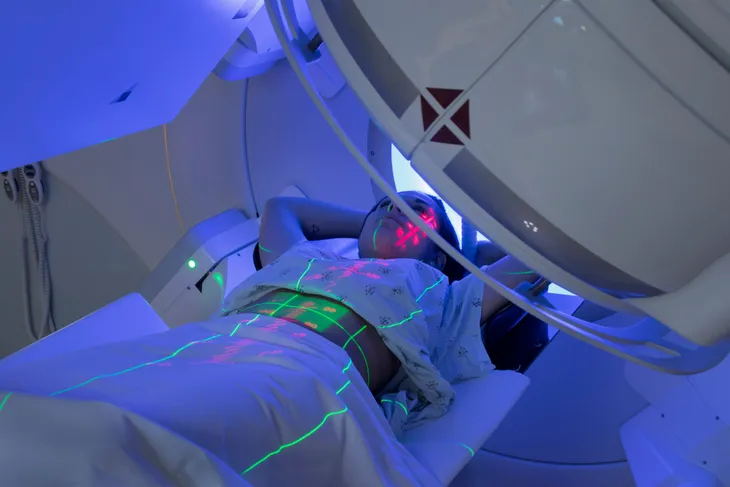Advanced breast cancer, also known as metastatic or stage IV breast cancer, occurs when cancer spreads from the breast to other parts of the body, often the bones, lungs, liver, or brain. Besides skin cancer, breast cancer is the most common cancer in women in the United States. But men aren’t exempt from the disease, they can develop it too. In fact, roughly 2,400 men are diagnosed with breast cancer in the U.S. each year.
Unfortunately, the American Society of Clinical Oncology (ASCO) says there is no cure for advanced breast cancer but there are treatments available that aim to improve your quality of life for as long as possible. Receiving a cancer diagnosis can be shocking and trying to comprehend the next steps can be even more overwhelming. To help, here’s a comprehensive look into advanced breast cancer treatment options in 2023.
Hormone Therapy for Breast Cancer
One possible treatment option is hormone therapy, which the American Cancer Society says is typically used after surgery to help reduce the risk of cancer coming back. However, sometimes doctors recommend starting it before surgery.
The source explains that some types of breast cancer are affected by hormones (such as estrogen and progesterone) and breast cancer cells have receptors that attach to these hormones to help them grow. The goal of hormone therapy is to stop these hormones from attaching to the receptors. Though there are several types of hormone therapy, the source says most types “either lower estrogen levels in the body or stop estrogen from helping breast cancer cells grow.”
Chemotherapy for Breast Cancer
Chemotherapy is another common treatment option for advanced breast cancer. The American Cancer Society explains that chemotherapy uses anti-cancer drugs to destroy cancer cells. It’s typically given intravenously (injected into your vein) or by mouth. However, the source notes that if cancer spreads to the spinal fluid, chemo may be given directly into this area, which is known as intrathecal chemotherapy.
Chemo may be recommended as the first treatment or it may be recommended after another treatment. The length of treatment also heavily depends on how well your cancer is responding to it and how well your body can tolerate it. The source also notes that in many cases, chemo has the best effect when more than one drug is used at a time. Oftentimes 2 or 3 drugs are used.
Targeted Drug Therapy for Breast Cancer
Targeted drug therapy aims to destroy cancer cells or slow down their growth. The American Cancer Society explains that it works by using medicines that are directed at proteins in breast cancer cells that help them grow, spread, and live longer. Targeted drug therapy can be given intravenously, as an injection under the skin, or as a pill.
Similarly to chemotherapy, targeted drug therapy enters the bloodstream and reaches almost all areas of the body. This is why it can be an effective treatment for cancer that has spread to other parts of the body. The source also notes that targeted drugs sometimes work when chemo doesn’t, and sometimes, it can help other cancer treatments work better.
Radiation Therapy for Breast Cancer
Your doctor may recommend radiation therapy, which uses high-energy x-rays to destroy cancer cells. The ASCO says the most common type of radiation treatment is called external-beam radiation therapy. This involves giving radiation from a machine outside the body.
The source says radiation therapy aims to shrink the tumor or slow the tumor growth. It can also be used to treat symptoms of cancer, such as pain. Radiation therapy is also often used (on its own or in combination with surgery) when breast cancer spreads to the brain. There are several types available to treat brain metastases, including stereotactic radiosurgery, whole-brain radiation, and fractionated stereotactic radiotherapy.
Immunotherapy for Breast Cancer
Immunotherapy, also known as biologic therapy, may also be recommended to help treat advanced breast cancer. This treatment aims to boost your immune system so it can “recognize and destroy cancer cells more effectively,” explains the American Cancer Society.
The source explains that the immune system has the ability to keep itself from attacking normal cells in the body. It does this by using checkpoints on immune cells that need to be turned off or on to start an immune response. However, breast cancer cells “use these checkpoints to avoid being attacked by the immune system.” So, immunotherapy works by using drugs, known as immune checkpoint inhibitors, to restore the immune response against breast cancer cells.
There are a variety of advanced breast cancer treatments available, but ultimately, it will be up to your medical team to determine which treatments are best for you. Factors like your type of breast cancer, its stage, grade, and size, as well as your overall health and preferences will all be taken into consideration when determining the best course of action.








